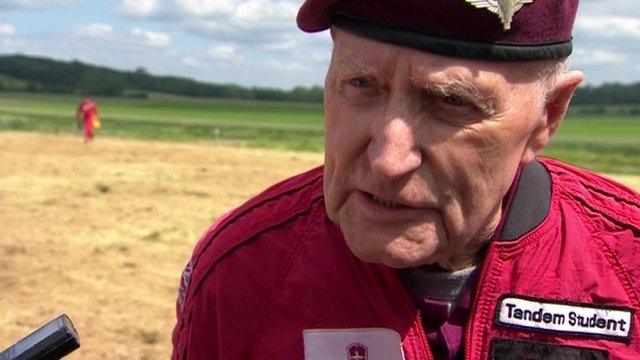Welsh D-Day veteran recalls horrors of Normandy landings
- Published
"You remember the chaps who are no longer with us"
As World War Two veteran Ted Owens, 94, from Pembroke Dock, returns to France to commemorate 75 years since the Normandy landings, here he recalls how he thought D-Day was a training exercise until he saw bodies on the beach.
It was 75 years ago, yet still the memories, smells and horror of the Normandy landings are fresh in Ted Owens' mind.
Age 19, as part of the Royal Marine commandos - a small, amphibious unit of highly-skilled men - he landed on France's Sword beach in the wave of initial advances.
Recalling his initial deployment from the landing craft, he said: "I went down the gangway and saw the dead bodies and wounded men on the beach and I realised this wasn't a game, this is the real thing.
"We had a big tank in front of us, and it had flails [heavy rotating chains] on the front to disperse any mines as it went up the beach.
"Lots of boys went up behind that, and over all the gun fire you could hear someone on a loud speaker saying 'concentrate your fire on the hotel'.
"It was a big hotel 100 yards in front of us.
"It had been made into a German bunker. At the bottom was the heavy guns, in the middle the machine guns, then the rifles and mortars on the top.
"I ran over to a disbanded tank, put my machine gun on top, and when I looked through its sights I could see the men moving about inside.
"I fired about five, six shots where I disturbed a wasp's nest. They sent some mortars and one of them hit the top of the tank, less than six feet away from me, and exploded.
"It came down on top of me, in my left shoulder, back and chest.
"I didn't go unconscious, but I soon realised - I was paralysed."
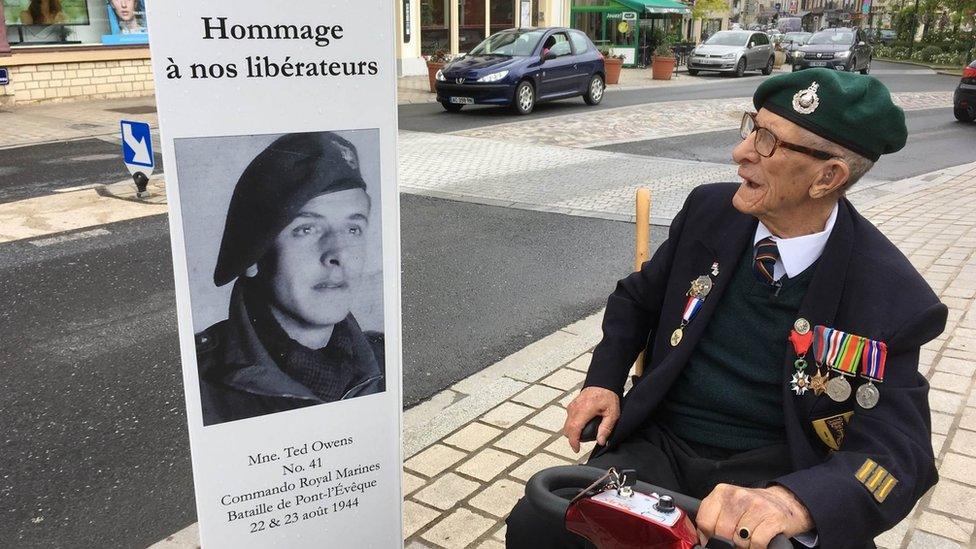
Ted at Pont L’Eveque looking at an old photo of himself where he is described as one of the town’s liberators
This was Ted's first experience of real combat after joining up just a year earlier at the age of 18.
He had trained throughout the UK - first in Devon, then North Wales, then finally in the Royal Marine commandos training camp in Scotland.
"It was a hard, hard school," Ted said, "But I passed out in flying colours.
"The only thing I failed was speed marching. I was always tail-end Charlie, but cross-country you couldn't stop me."
It was just a few months after he completed his training that D-Day approached.
Ted said: "First of all, they put us on a train. All the windows were blacked out so you didn't know where you were in case of spies.
"We finished up in a camp in Littlehampton in Sussex - Americans on one side, Canadians on the other. They were always having a punch up."
Such was the secrecy surrounding D-Day, even as Ted and his comrades boarded their landing craft to cross the channel, they were still unsure as the nature of their mission.
"I still thought it was a beach exercise," he said.
"It was bad weather and 99% were sea-sick. I wasn't because I was used to boats.
"We were about three-quarters of the way over and it came over the speaker for us to eat something.
"I went to my kit bag and pulled out a tin of self-heating soup. It had a fuse going down the middle, and you had to strike a match on top and that would heat it.
"It was oxtail soup, and I knocked it back.
"Ten minutes later I was on the deck like the rest of them. I was really sea-sick and I've never eaten oxtail soup since."
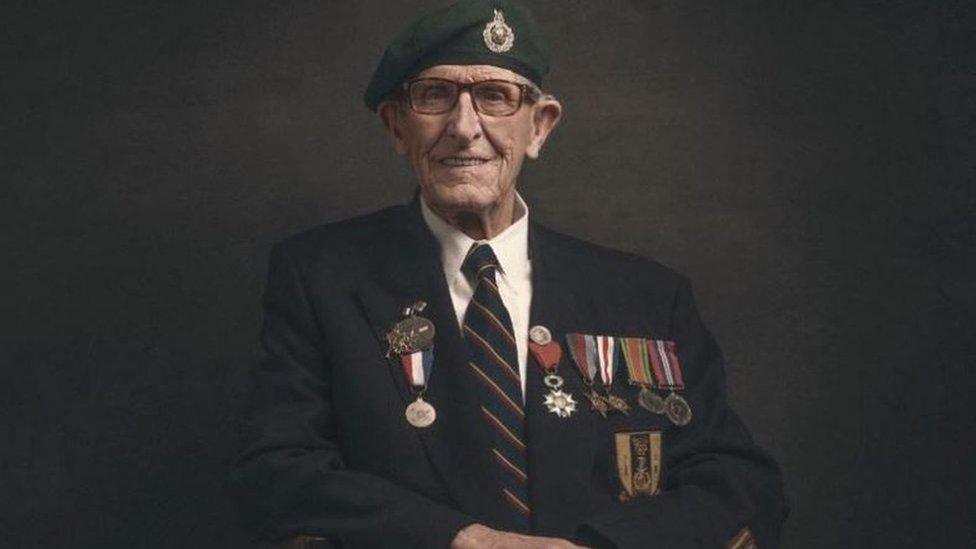
At the age of 94, Ted Owens is the last of his 41 Commando unit
Ted was on a large landing craft, carrying roughly 50 men and two tanks.
As his 41 Commando unit were drawing close to the beach, their leader Lord Lovat ordered them to remove their tin hats and wear their green berets - the signature of the Royal Marine commandos unit.
"It was a crazy order," Ted said, "but we all obeyed it."
"All through the war, we never wore a tin hat. You could pick us out anywhere."
156,000allied troops landed in Normandy, across
5 beaches
7,000ships and landing craft involved and 10,000 vehicles
4,400from the combined allied forces died on the day
4,000 - 9,000German casualties
Thousandsof French civilians also died
The sea was full of battle ships and tanks, making "one heck of a noise". But as Ted went down on the gangway, there was a different sound - a piper, playing his pipes.
"I don't know if he was crazy or brave," said Ted, "But you can imagine the men. Shut your pipes, stop drawing attention to us!"
After seeing the carnage on the beach, then firing on the hotel and getting struck by returning mortar, Ted found himself paralysed.
He lay on the sand as the battle raged around him.
He said: "After a while, I heard someone say, 'This poor gentleman's had it'.
"They turned me over but my eyes moved. They said, 'Oh God, he's alive!'
"So they patched me up as best they could and gave me a morphine injection."
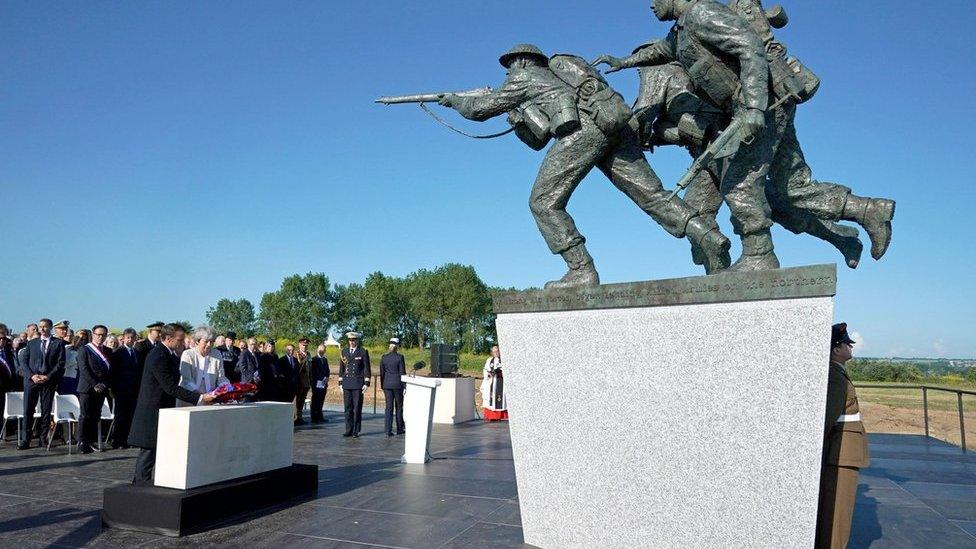
A new memorial statue in Normandy shows three British soldiers fighting their way up the beach.
He was stretchered onto a landing craft, before being moved to a Canadian hospital ship, then eventually a hospital in Caerphilly, south Wales.
He recovered for two-and-a-half months then, after five days leave, was sent back to his unit in Pont-l'Évêque, Normandy.
There he faced "one hell of a battle", in which one of his friends "went berserk" after finding 12 men tied up with gunshots to the back of their heads.
After this battle, he then fought in Dunkirk as part of a relief unit and during the Battle of the Bulge alongside the Americans.
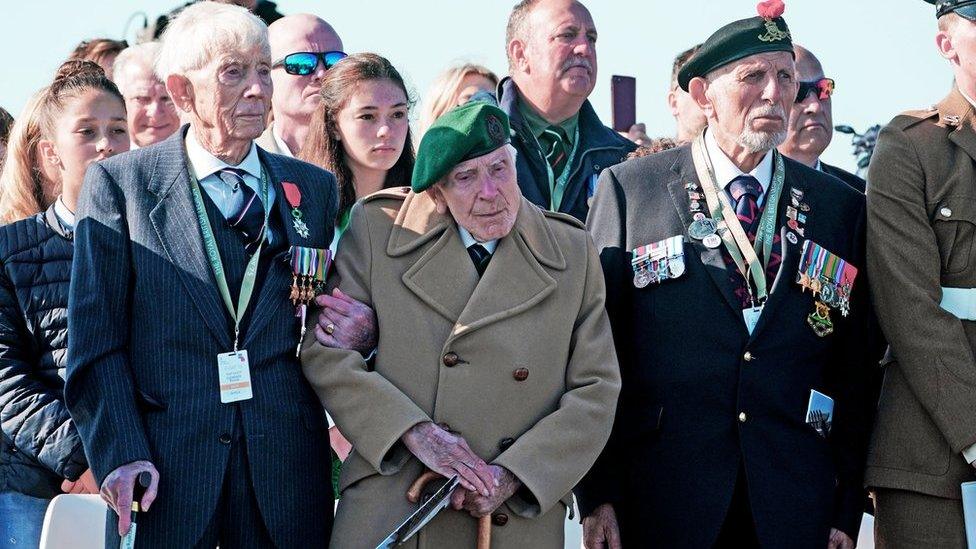
D-Day veterans attending a commemoration event at the new British Normandy Memorial site
While there, a bullet flew past his nose, shattering in the wall next to him then entering his throat, just skimming his windpipe.
Seven decades on, it is still lodged in his throat.
He said: "My unit were moved to Germany then, but I was deemed unfit and sent home.
"It was a horrible experience, but it was part of life.
"I'm just glad we beat the Germans."
As part of D-Day commemorations, Ted has returned to Pont-l'Évêque, Normandy to pay his respects to his fallen comrades.
While there, he saw a photo of his young self, attached to a lamp-post in the town, commemorating him as one of the town's liberators and someone who fought to free France and defeat the Nazis.
- Published5 June 2019
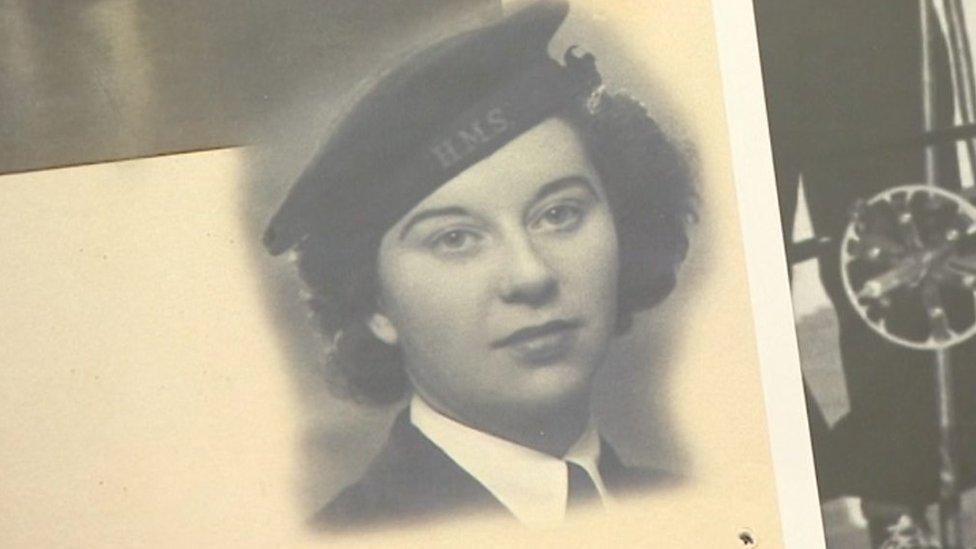
- Published5 June 2019
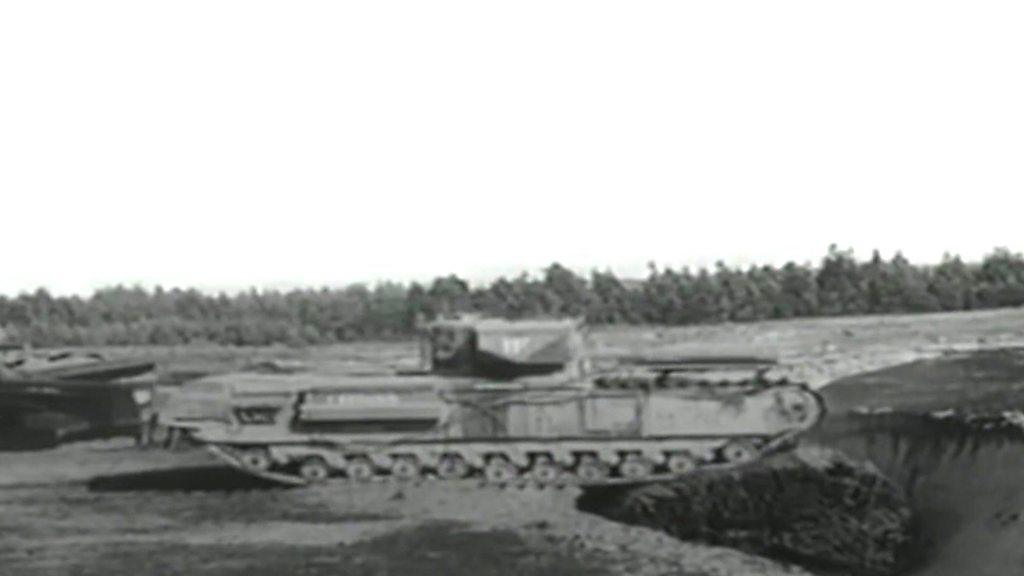
- Published11 March 2019
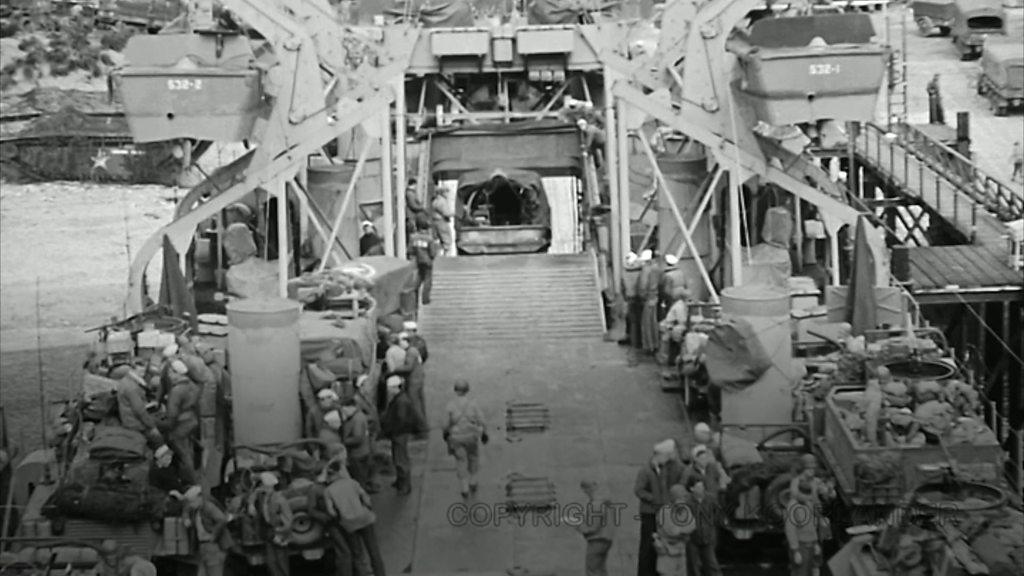
- Published6 June 2014
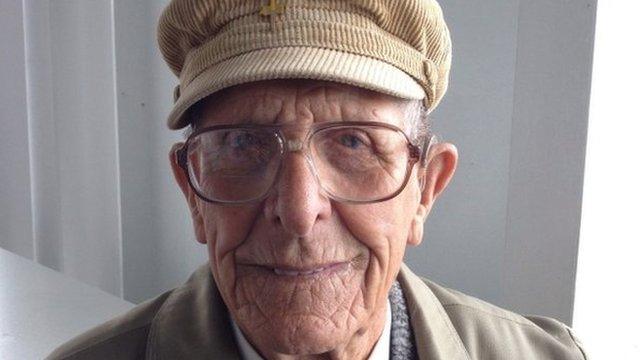
- Published5 June 2014
